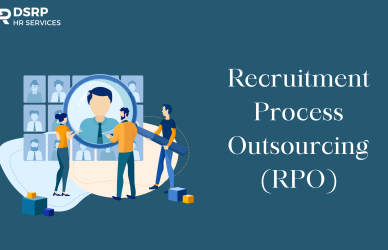Company culture is the heartbeat of any organization. It is the set of shared values, goals, attitudes, and practices that characterize a company. A strong company culture can lead to higher employee satisfaction, improved performance, and long-term success. But who is responsible for shaping and nurturing this culture? This is where Human Resources (HR) plays a crucial role. In this blog, we’ll explore the vital role of HR in building and maintaining a strong company culture and how it benefits both the employees and the organization.
What is Company Culture?
Before we dive into the role of HR, it’s important to understand what company culture is. Simply put, company culture is the personality of a company. It’s the environment in which employees work, and it reflects the organization’s values, mission, and expectations. A company’s culture can be formal or informal, hierarchical or flat, and collaborative or competitive. Every organization has its own unique culture, whether it is intentionally shaped or not.
A strong company culture fosters a positive work environment, boosts employee morale, and increases productivity. It helps employees feel valued, supported, and aligned with the company’s mission. On the flip side, a weak or toxic culture can lead to high employee turnover, low morale, and a negative reputation.
The Role of HR in Shaping Company Culture
HR plays a pivotal role in creating, nurturing, and sustaining a company’s culture. Below are the key ways in which HR contributes to building a strong company culture:
1. Recruitment and Hiring
Hiring the right people is the first step in building a strong company culture. HR professionals are responsible for recruiting candidates who not only have the necessary skills but also align with the company’s values and culture. It’s crucial that HR creates a hiring process that emphasizes cultural fit.
During the recruitment process, HR can evaluate candidates based on how well they align with the company’s mission, values, and overall work environment.
2. On boarding and Orientation
A well-structured on boarding process is essential for integrating new employees into the company culture. HR’s role in on boarding goes beyond just paperwork and training. It’s about immersing new hires in the company’s values, goals, and expectations. HR can organize orientation sessions that not only introduce employees to their roles but also to the company’s culture, leadership, and mission.
During on boarding, new employees should be introduced to the company’s code of conduct, communication style, and team dynamics. This helps them feel more connected to the organization and its culture from the very beginning. HR can also set up mentorship programs to help new employees transition smoothly into the company’s work environment.
3. Employee Development and Training
HR is responsible for developing and implementing training programs that align with the company’s values and goals. Employee development is a key aspect of a strong company culture. When employees feel that their growth is supported, they are more likely to be engaged and committed to the organization.
HR can design and offer training programs that promote leadership, teamwork, and personal development. Continuous learning and development opportunities not only improve employee skills but also strengthen the company culture by showing that the organization values personal and professional growth. By investing in their employees, HR helps to foster a culture of continuous improvement and collaboration.
4. Performance Management
Performance management is another important area where HR plays a role in shaping company culture. A strong performance management system is not just about evaluating employee performance, but also about providing constructive feedback and support. HR can create a performance review process that emphasizes company values and encourages behaviours that align with the culture.
For example, if teamwork and collaboration are central to the company’s culture, HR can design performance metrics that assess an employee’s ability to work well in teams. Providing regular feedback, recognizing achievements, and offering growth opportunities are all ways HR can reinforce a positive culture of continuous improvement.
5. Employee Engagement and Well-being
Employee engagement is a critical factor in building a strong company culture. Engaged employees are more productive, satisfied, and loyal to the organization. HR is responsible for creating initiatives that foster employee engagement and well-being. These initiatives can include wellness programs, team-building activities, employee recognition programs, and opportunities for career development.
A positive and supportive work environment is key to maintaining high levels of employee engagement. HR can work with leadership to ensure that employees feel valued and appreciated. This, in turn, helps to create a culture of trust, loyalty, and commitment.
6. Diversity and Inclusion
A strong company culture is one that values diversity and inclusion. HR plays a crucial role in ensuring that the organization promotes an inclusive workplace where employees from different backgrounds feel welcome and respected. This involves creating policies and initiatives that support diversity, such as inclusive hiring practices, bias training, and employee resource groups.
7. Communication and Transparency
Effective communication is the foundation of a strong company culture. HR ensures that there is open and transparent communication between leadership and employees. By fostering clear communication channels, HR helps to create a culture of trust and collaboration.
Regular communication about the company’s goals, changes, and updates can help employees feel more connected to the organization’s mission. HR can also encourage two-way communication, where employees feel comfortable sharing feedback and ideas with management.
Conclusion In conclusion, HR plays a fundamental role in building and maintaining a strong company culture. From hiring the right talent to fostering employee engagement, development, and inclusion, HR is at the core of creating an environment where employees thrive. A strong company culture not only leads to happier, more productive employees but also contributes to the overall success and sustainability of the organization. By continuously working to shape and nurture the company’s culture, HR ensures that it remains aligned with the organization’s values and goals, setting the foundation for long-term success.





